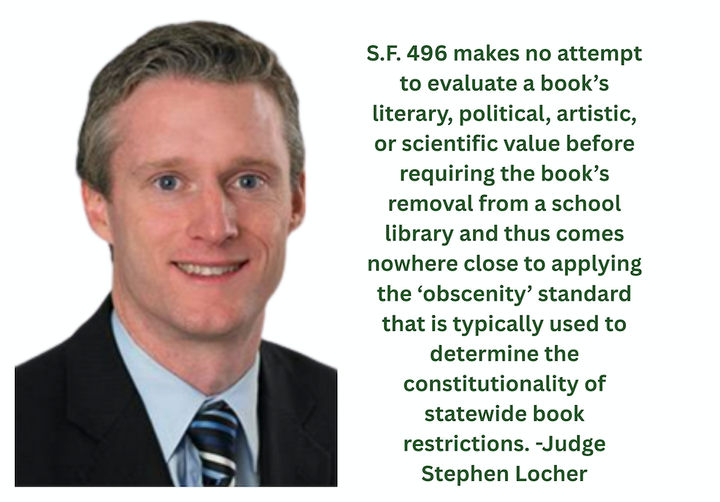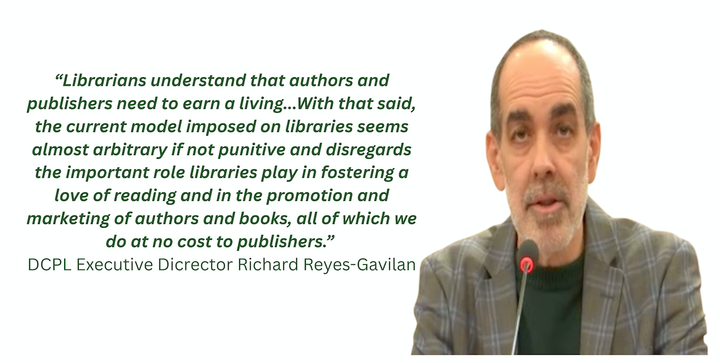The Words & Money Weekly Newsletter: September 5, 2025
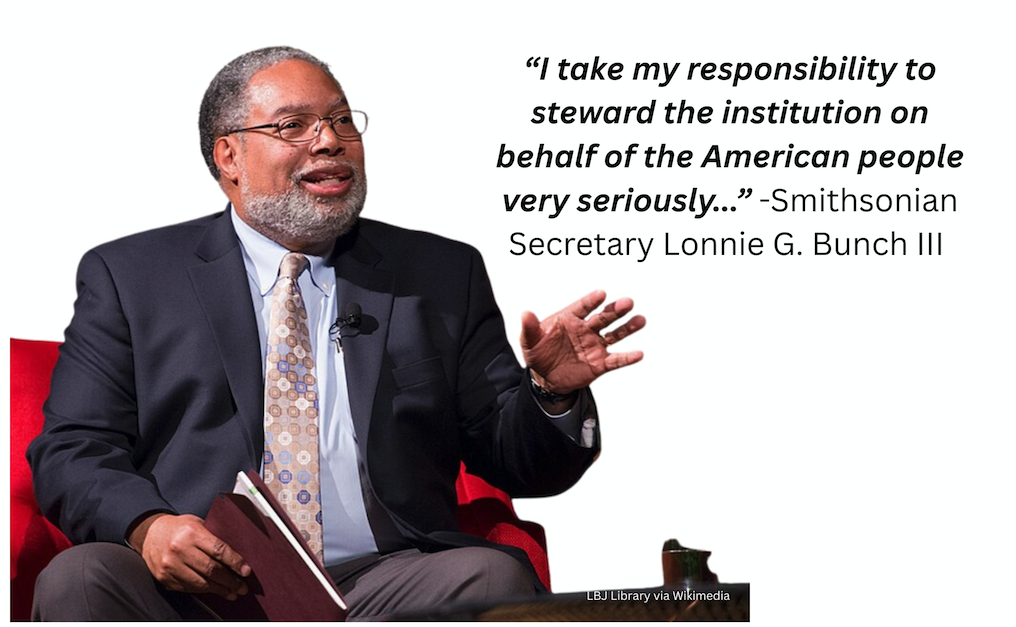
Thank you for supporting Words & Money, a new independent media venture that aims to properly center libraries in the 21st century reading and writing enterprise. If you're already a subscriber, we thank you for your support. And we encourage you to please share this newsletter with your friends and colleagues and ask them to also support us with a subscription.
In the news this week, lawyers for Anthropic and a class of authors have just unveiled the terms of a $1.5 billion deal to settle claims over the company's unauthorized downloading of books. Congress has returned and is back at work on a budget for 2026. And so far, despite the Trump administration's efforts to shutter the IMLS along with several more federal agencies, lawmakers appear open to continuing federal support for libraries and the IMLS. And among the headlines in our weekly media roundup, The Queue, Smithsonian Secretary Lonnie Bunch is resisting the Trump administration's bid to control the institution's programs and exhibits, librarians are looking to take on AI-generated books, the IMLS releases stats from its 2023 Public Library Survey, and a great talk with Oxford University librarian Richard Ovenden.
Anthropic, Authors Unveil Terms of $1.5 Billion Deal to Settle Piracy Claims
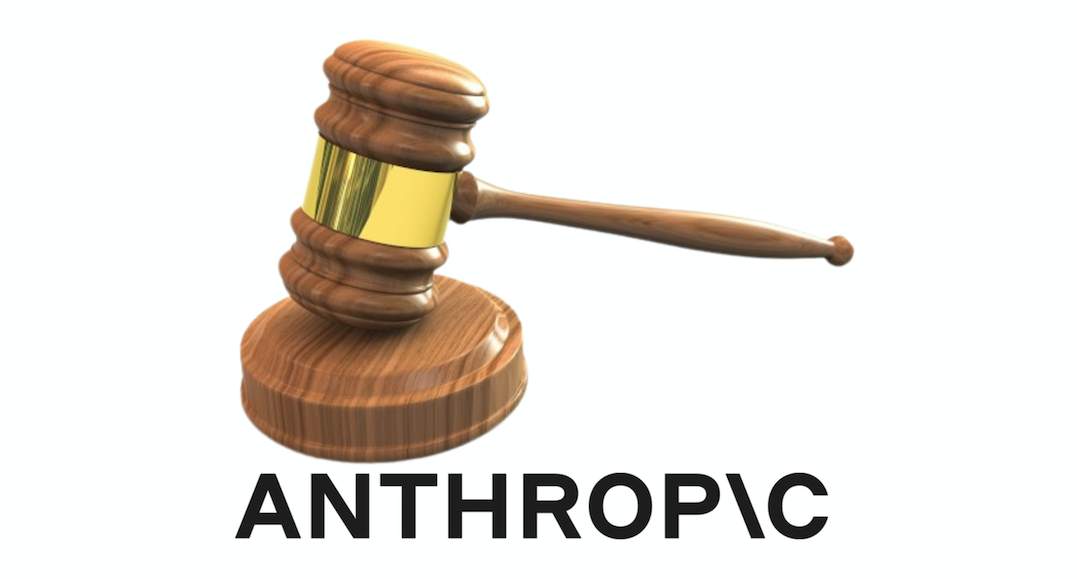
If the settlement is approved, an undisclosed number of authors of some 500,000 pirated works will receive roughly $3,000 per work, making the settlement potentially the largest copyright award in history.
The Fight for the Future of the IMLS Heats Up in Congress, and the Courts

With a budget deadline looming, Congress appears poised to fund the IMLS in fiscal year 2026, even as the Trump administration seeks to shutter the agency by executive order.
The Queue: Library News for the Week Ending September 5, 2025
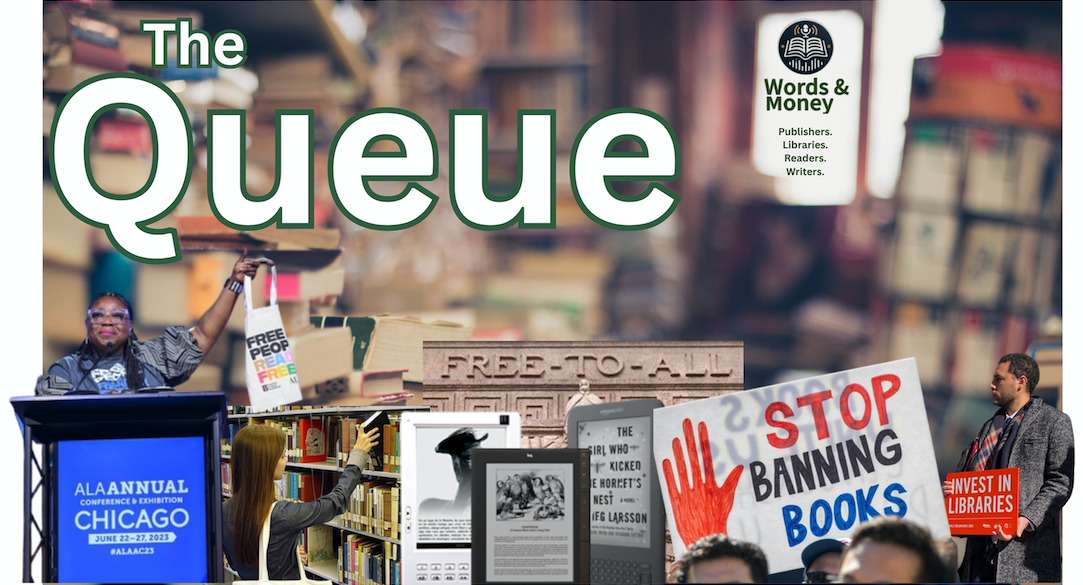
Keep an eye on this one as it could escalate quickly: The New York Times reported this week that Smithsonian secretary Lonnie G. Bunch III has sent a letter to staff reassuring them of the venerable institution's independence in the wake of an effort by the Trump Administration to review the Smithsonian's programs and exhibits for alleged political bias.
“I take my responsibility to steward the institution on behalf of the American people very seriously,” Bunch wrote to staff, reiterating that the institution's independence was paramount, and seemingly pumping the brakes on the administration's efforts to effectively seize control of the one of the world's premiere cultural institutions.
"Mr. Bunch told the staff that his response to the White House, sent in a letter on Tuesday, had reiterated the institution’s intention to rigorously review its content for inappropriate partisanship. But he said it would be the Smithsonian, not the executive branch, that would direct the effort," the Times reports. “Our own review of content to ensure our programming is nonpartisan and factual is ongoing, and it is consistent with our authority over our programming and content,” Bunch told staff.
While the letter is measured and eminently reasonable, it surely takes the highly respected Bunch another step closer to a collision with Trump. And though the president has little power to make changes at the Smithsonian, which is not an executive branch agency but “a trust instrumentality” run by a Board of Regents, that likely matters little to Trump, who has fired officials across the government despite questionable authority, including former Librarian of Congress Hayden.
In fact, Trump has already floated a trial balloon of sorts at the Smithsonian, announcing on social media in May that he had fired National Portrait Gallery Director Kim Sajet, whom he derided as "a strong supporter of DEI.” In response, the Smithsonian board rejected Trump's authority to fire Sajet, and she briefly remained in her post until she decided to step down in June.
The news of Bunch's response comes after the administration in an August 12 letter, outlined a chilling plan to collect a wide range of information from across the Smithsonian, with the expectation that the institution would, “within 120 days,” begin “implementing content corrections where necessary, replacing divisive or ideologically driven language with unifying, historically accurate, and constructive descriptions across placards, wall didactics, digital displays, and other public-facing materials.”
Librarians and scholars have objected to the White House review, which, the Times notes, is being viewed as "an effort to introduce political ideology into Smithsonian content in ways that undermine the institution’s autonomy and its standing as a nonpartisan presenter of American history and scientific fact."
ARSL, ULC Urge Congress to Stand Up for the IMLS

As we reported this week, the IMLS (Institute of Museum and Library Services) is fighting for its life in the courts and in Congress. And this week Kate Laughlin, Executive Director of the Association for Rural & Small Libraries (ARSL), and Brooks Rainwater, President & CEO of the Urban Libraries Council (ULC), released a joint letter urging Congress to stand up for their constituents by standing by the IMLS.
"As Congress returns from recess and refocuses its attention to the appropriations process, it must not lose sight of a decision that could fundamentally endanger American public libraries: whether to fund the Institute of Museum and Library Services (IMLS), which provides states with vital grants that strengthen communities nationwide," the letter reads.
"Done in the name of efficiency, [the proposed cuts to IMLS] are anything but," the letter goes on to argue, pointing to several examples of how libraries big and small manage to wring tremendous value for their communities from a modest a amount of federal support.
ALA, Fighting for the IMLS in One Court, Joins Amicus Brief to Save the Agency in Another

The American Library Association this week announced that it has led "a coalition of leading library, museum, and cultural organizations, and the nation’s largest labor union of cultural workers," in the filing of a friend-of-the-court brief today in Rhode Island v. Trump, "urging the First Circuit Court of Appeals to uphold an injunction against the Trump-Vance administration’s unlawful attempt to dismantle" the agency by executive order.
“IMLS is indispensable for libraries, museums, and cultural workers, as well as the millions of people we serve every day," ALA President Sam Helmick said, in a statement. "We hope the court will strike down the attempt to dismantle IMLS, which the law directs to provide crucial funding, research and resources that advance our shared missions: stewarding our history, strengthening access to lifelong learning, seeding opportunity and sparking innovation for all Americans."
AI Books in the Library

American Libraries has a good piece this week about the growing problem posed by AI-generated books in the library.
"Some libraries have developed policies regarding staff and patron use of AI. These policies typically address the appropriate use of AI in the workplace and how to manage or restrict the data these tools collect," writes Reema Saleh, who also works as an editor at the Chicago Review of Books. "But collection development policies regarding AI are harder to come by. During ALA’s 2025 Annual Conference and Exhibition in Philadelphia in June, a resolution to create an artificial intelligence cross-divisional working group passed. The working group will be charged with developing a unified, critically informed ALA position on AI and libraries for Council consideration."
Bucknell University Press Is Targeted for Closure
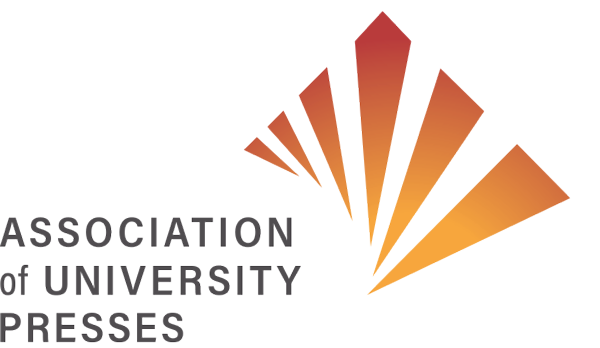
The Association of University Presses this week is urging Bucknell University to reconsider a plan that would see its university press shutter at the end of the 2025-2026 fiscal year.
"A vibrant publishing program since its founding in 1968 and a member of this association since 2016, Bucknell University Press publishes distinguished work in Iberian, Latin American, Irish, and interdisciplinary eighteenth-century studies," AUP reps noted in a release. "Under the able leadership of Suzanne Guiod, its publications have garnered numerous recent accolades: The Joyce of Everyday Life, by Vicki Mahaffey, won the 2024 American Conference on Irish Studies’ Robert Rhodes Prize; Reading Homer’s Odyssey—intended for undergraduate teaching—was recognized for scholarly excellence as an Association of American Publishers’ PROSE Award finalist; and a remarkable near 30% of the press’s titles published over the past year have received an American Library Association’s CHOICE 'Highly Recommended' rating."
AUP officials say they have reached out to university administrators to offer "assistance and insights" about their plans. "We remain hopeful that a mutually beneficial reimagination of the press will be possible."
FCC Joins Ted Cruz-led Effort to End Popular WiFi Program

Ars Technica reports on FCC chair Brendan Carr's announcement this week that would end a 2024 expansion of the federal E-Rate Program to facilitate Wi-Fi on school buses and Wi-Fi hotspots for students or library patrons for outside of schools and library buildings. The program was supported by the library community, and former FCC chair Jessica Rosenworcel first announced the program from the stage at the 2023 Annual Conference in Chicago.
"If Carr's proposal is approved, Universal Service Fund administrators 'will be directed to deny pending funding year 2025 requests for E-Rate funding for the off-premises use of Wi-Fi hotspots and Wi-Fi on school buses as these services will be determined to be ineligible,' the FCC announcement said," the report notes.
The move comes four months after Senator Ted Cruz (R-Texas) convinced the Senate to kill the FCC's hotspot program in May, although the effort has stalled in the House so far.
"Cruz's Senate proposal was a resolution of disapproval, which would have forbidden the FCC from adopting a similar rule in the future," Ars Technica explains. "By contrast, Carr's action to end the program wouldn't prevent a future FCC chair from reviving it. Cruz still wants the House to vote on the resolution to ensure that the Wi-Fi hotspot program can never be revived."
Michiganders Warn of Book Bans, Attacks on Schools and Libraries
Via the Michigan Advance, a report on a forum hosted by Freedom to Read advocates "to discuss strategy, and to hopefully recruit like-minded people" to push back against conservative activists seeking to take over local school and library boards.
"The three groups that gathered for the forum, to discuss those advances and how to fight them, included members of Stand Against Extremism of Livingston County, or SAGE, the Lapeer County chapter of Fight 4 the First and Friends of Patmos Library," the report notes. "The panel also talked shop on ways average people could fight against hostile takeovers of small community boards by Christian and far-right activists."
New Library Board Seated in Arkansas
Tess Vrbin at the Arkansas Advocate reports that Arkansas governor Sarah Huckabee Sanders appointed six new members to the state's library board in August, with a seventh appointment still to come. And after the new board's first meeting, there were no changes announced to funding or policy.
"Arkansas public libraries will receive their usual allotments of state funding for the first quarter of the 2026 fiscal year, a Department of Education attorney told the new State Library Board during its first meeting Tuesday," Vrbin reports. "The new members did not vote on library funding or any other matters and will be able to vote and set policy after being confirmed." The State Library Board’s next meeting will be in November.
In Montana, Voters Voice Concern Over Efforts to Redirect Library Funding
The Daily Montanan reports on how some local leaders are moving to divert approved funding from libraries to other priorities, over the objections of voters.
"Last year, when the Great Falls Public Library successfully asked voters to approve a levy, the voters did, but that was set against the backdrop of a failed public safety levy, which would have funded more law enforcement. City leaders then set their sights on taking funding from the library and using those funds for public safety," the Daily Montanan reports.
“This idea that it’s ‘for public safety’ to me feels like a distraction,” said Jasmine Taylor, Great Falls resident and current candidate for Great Falls mayor, according to the article. “What this really is, is about nationalizing attacks on arts and culture and critical thinking. And we do that through attacking these public goods like museums and libraries. It doesn’t promote public safety in any way, it detracts from it.”
Book Riot, EveryLibrary Team Up Again for 'Parental Perceptions' Survey

Over at Book Riot, Kelly Jensen leads off her weekly censorship news roundup by noting that the publication has once again joined with EveryLibrary to survey parents about public and school libraries.
"The 2025 Parental Perceptions of Libraries surveys have just completed their time in the field. Over the next several weeks, results and insights from those will be shared here, on EveryLibrary Institute’s website, and in other outlets focused on understanding the current landscape of American censorship and libraries," Jensen writes. "Much has changed over the past two years. Our goal is not only to understand this moment in time when it comes to how parents view their local public libraries. It is also meant to allow us to compare with where we were two years ago."
IMLS Releases Latest Public Library Data
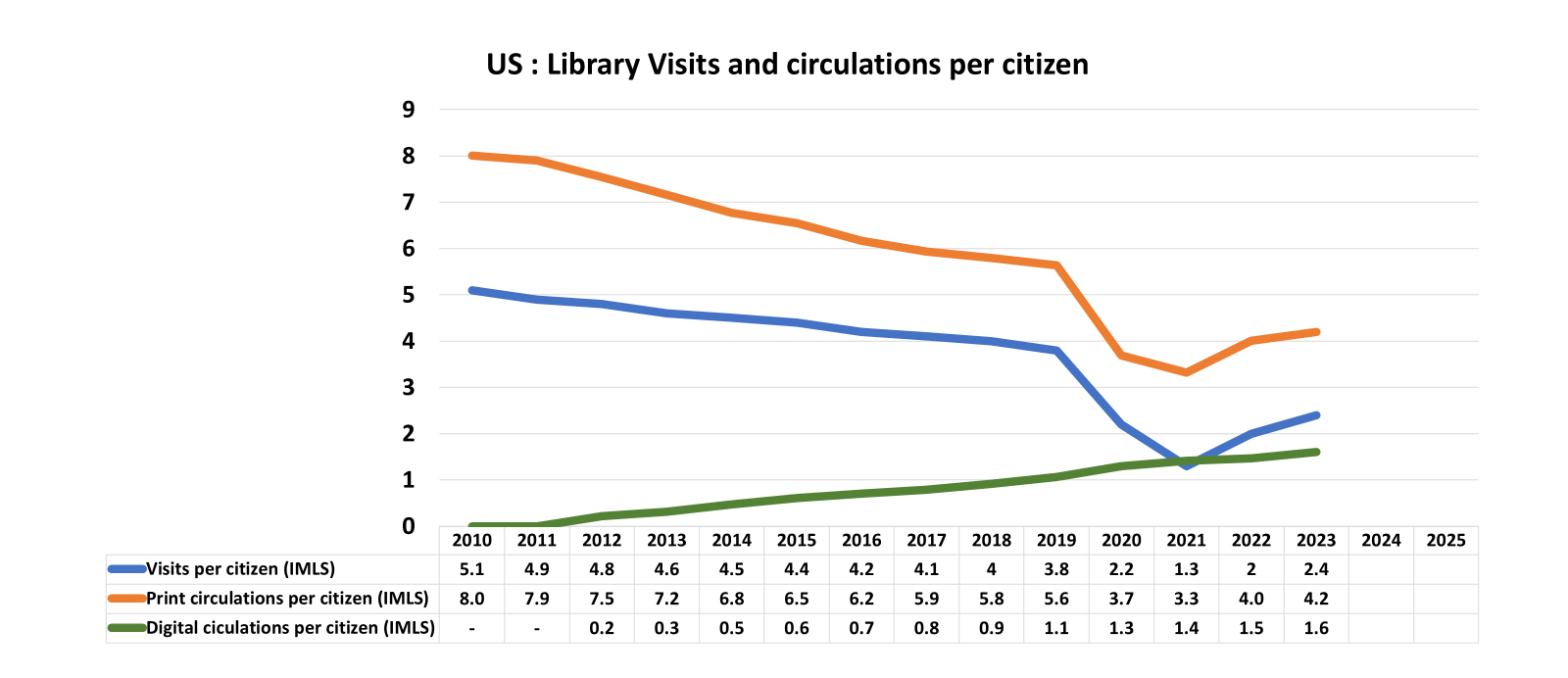
The IMLS has released the latest data from its annual Public Library Survey, which covers the year 2023.
"These data, supplied annually by public libraries across the country, provide information that policymakers and practitioners can use to make informed decisions about the support and strategic management of libraries," the IMLS website notes. The data are collected from approximately 9,000 public libraries with approximately 17,000 individual public library outlets and includes information about library visits, circulation, size of collections, public service hours, staffing, electronic resources, operating revenues and expenditures and number of service outlets.
U.K.-based library advocate Tim Coates, author of the annual Freckle Report, told Words & Money that while visits are rebounding after the Covid-19 lockdowns, they remain roughly half of what they were in 2010, and, he adds, have been in a serious decline for more than a decade.
Alberta Pauses, Will Review Controversial New Book Ban Policy...and How Margaret Atwood Is Fighting Back

The Guardian is one of several outlets this week reporting on the Canadian province of Alberta's unpopular, American-like bid to ban books is schools.
"The Canadian province of Alberta says it will temporarily pause its controversial book ban 'to ensure that our classic literary works remain in school libraries' after novels, including several warning of dystopian government overreach, were pulled from shelves," the report notes. "The rules, set to go into effect on 1 October, reflect a lobbying success by socially conservative 'parents’ rights' groups in the province and mirrors a trend in the United States. But the ambiguity over what constitutes 'explicit sexual content' has also provoked protest from school boards.
Among those books caught up in the ban, The Guardian notes: "The Handmaid’s Tale by Margaret Atwood, 1984 by George Orwell and Brave New World by Aldous Huxley. The Color Purple by Alice Walker and I Know Why the Caged Bird Sings by Maya Angelou were also targeted, as were Jaws by Peter Benchley and It by Stephen King."
Meanwhile, the BBC reports that author Margaret Atwood is pushing back in the best way she knows: with a new short story.

"Ms. Atwood said she wrote a short story for 17-year olds about two 'very, very good children' named John and Mary, since her award-winning book was no longer suitable for some Alberta schools. 'They never picked their noses or had bowel movements or zits,' she said in the beginning of her story. 'They grew up and married each other, and produced five perfect children without ever having sex,'" the BBC notes.
Nominations Sought for 2026 'I Love My Librarian' Awards

The American Library Association this week announced nominations are now open for the prestigious I Love My Librarian Award.
"The national award recognizes the outstanding public service contributions of librarians working in public, school, college, community college or university libraries. Nominations are accepted online now through Monday, Dec. 15, 2025," the release notes. The winners will be honored at the 2026 ALA Annual Conference in Chicago. "Since the award was established in 2008, library users nationwide have submitted more than 24,000 nominations detailing how librarians transformed their communities through innovative programs, increasing access to resources and services, and promoting literacy. 170 librarians have received this distinguished honor."
And Finally This Week...
Oxford University Librarian Discusses Book Bans, and the Trump Administration's Attacks on Libraries, Book Bans

The Australian Broadcasting Corporation has a great talk this week with Oxford University librarian Richard Ovenden, author of the 2020 book Burning the Books: A History of the Deliberate Destruction of Knowledge, and it is well worth a listen.
"Donald Trump is fighting a war against knowledge," the program description notes. "In his second term, he has fired the Librarian of Congress and the Archivist of the United States, and government websites have been altered to remove facts about climate change and Black history. Haven't we seen this kind of war against knowledge before?"











